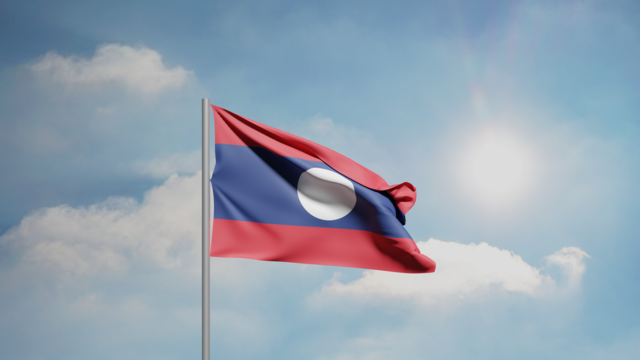Laos Under the Shadow of Communism

Today, as we honor the more than 100 million victims of communism around the world, I wish to share a story that is both personal and political, a story about Laos, the country of my birth.
At just 13 years old, I became a child soldier—not by choice, but by necessity. I fought to survive in a land where expressing your beliefs could cost your life. Eventually, I found freedom in America, but the fight for Laos—for truth, democracy, and dignity—did not end with my arrival. It has continued every single day since.
This year marks 50 years since Laos fell under communist rule, under the control of the Lao People’s Democratic Republic, a regime that has never held free elections. While much of the world has moved forward, Laos remains trapped in a system that silences opposition and denies its people basic freedom and human rights.
The situation is dire:
The economy is in crisis. Inflation is soaring, and the national currency, the Kip, has lost so much value that many families can no longer afford even the most basic necessities. Over 75% of the population survives on less than $2 a day.
The regime, buoyed by alliances with Vietnam, China, North Korea, Cuba, and Russia, has signed treaties that allow foreign powers to shape the national policies, suppressing any hope for democratic reform. And troubling reports indicate that the Lao military may align with North Korea to support Russia’s war in Ukraine, further entangling Laos in global conflict.
Beyond politics, the human cost is staggering. Public debt exceeds 108% of GDP, much of it owed to China, reported by the IMF/ World Economics in 2024. Inflation and a weakening currency are worsening Lao citizens’ daily life. Rampant corruption, both passive and active, continues to erode public trust.
Drug trafficking fuels addiction and violence. Human trafficking and prostitution are on the rise.
Press freedom is non-existent—Laos ranks 153rd out of 180 Countries. (Reported by World Press Freedom Index, 2024). Religious freedom is under severe attack, particularly in rural areas. Just this year, 24 Christians in Northern Luang Namtha Province were expelled from their homes, which were then destroyed. In 2024, a similar incident occurred in Southern Savannakhet Province, Pin District, Tang Vai Nam Village, with local authorities complicit in evicting Christians and seizing their property.
Equally disturbing is the systematic pattern of enforced disappearances and extrajudicial killings. Activists and dissidents, both inside and outside Laos, have vanished with no investigations, no accountability. Many were arbitrarily detained or killed simply for speaking out, and some took refuge in the Third country. These actions reflect a regime that rules through fear and has no regard for human rights.
Despite countless calls from the international community, the Lao government continues to deny responsibility for these abuses. There is no transparent legal process, no independent judiciary, and no protection for the families of victims. These violations are not isolated; they are part of a broader, systemic effort to repress any form of dissent.
Meanwhile, Laos suffers from widespread environmental devastation. Forests are disappearing, rivers are poisoned by mining, and hydropower dams displace entire communities, offering little benefit to the people, despite generating electricity for export. Laotians pay more for electricity than their neighbors in Thailand.
Even the education—the key to any nation’s future—is in crisis. Schools are underfunded, understaffed and underpaid; with some areas relying on the military to serve as substitute teachers.
And yet, despite all of this, we have not lost hope!
Bounleuang Kern Kataviravong was one of five distinguished panelist at this year’s Captive Nations Summit. This article was adapted from his speech about Laotian oppression under communism.
The views and opinions expressed in this op-ed are those of the author and do not necessarily reflect the official policy or position of The Victims of Communism Memorial Foundation.

